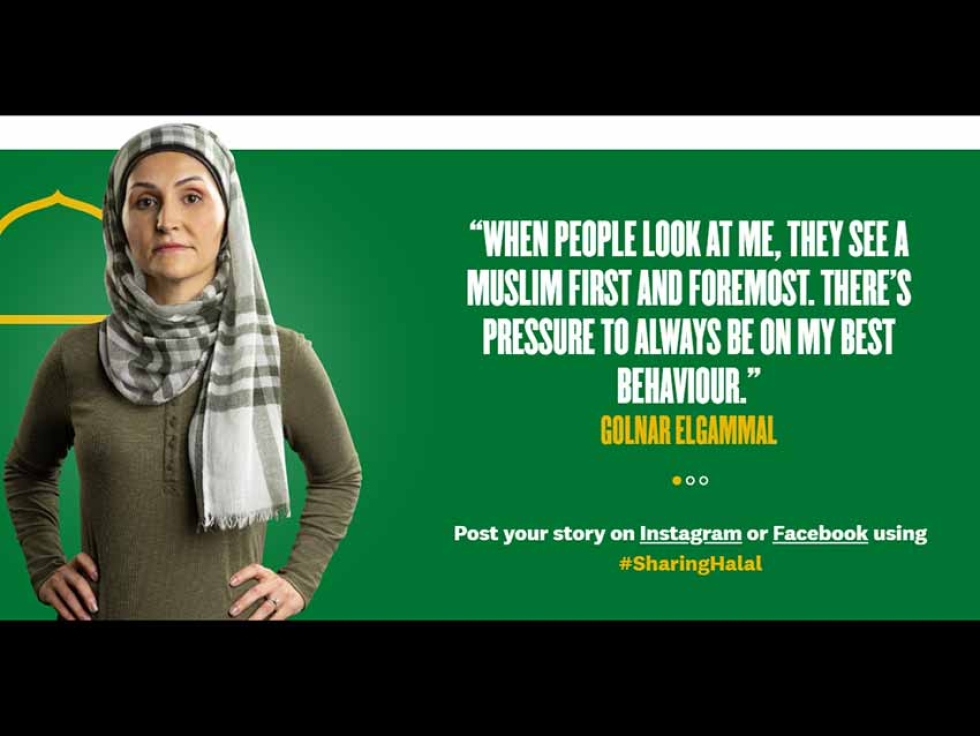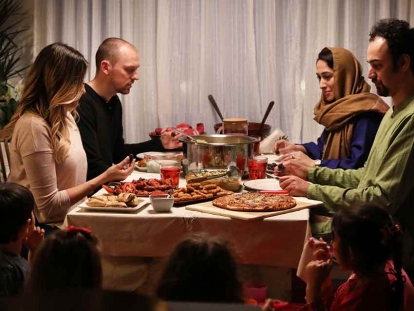 Zabiha Halal
Zabiha Halal
May
Zabiha Halal Aims to Challenge Islamophobia with Its 'Sharing Halal' Campaign
Written by Zabiha HalalTORONTO, May 24, 2022
One in four Canadians don't trust those who belong to the Muslim faith group, according to a new survey by Zabiha Halal, Canada's #1 halal food brand.
This was just one of the findings Zabiha Halal uncovered in a national survey recently conducted by Leger, as part of its 'Sharing Halal' campaign that aims to challenge and dismantle Islamophobia in Canada.
The survey also revealed that respondents believe Canada is an inclusive country -- with 81% of respondents reporting that Canada is accepting of people with varying ethnic, cultural, and faith backgrounds – however, one in three Canadians (33%) are concerned with the number of Muslim immigrants entering Canada; and 27% say hijabs should be banned. These findings identify a significant opportunity to enhance understanding and compassion for the Muslim community in Canada, which Zabiha Halal hopes to help foster among all Canadians.
Zabiha Halal has been showcasing the diversity of people and perspectives the Canadian Muslim community holds in its 'Sharing Halal' campaign. Now in its fourth year, 'Sharing Halal' aims to give Muslim Canadians a chance to address the Islamophobia they've faced in Canada by sharing their personal experiences, in their own words, while also engaging non-Muslim Canadians by giving them insight into the experiences of the Muslim community and the challenges they often face.
"As a proud Canadian, I know just how much pride we take in being a diverse and welcoming country, but from my own experiences as a Muslim, I know that this openness and acceptance isn't always extended to the Muslim community," said Sarah Khetty, Marketing Director of Zabiha Halal. "We hope that through our 'Sharing Halal' campaign we can show the real people that make up the Muslim community - including their pride, their fear, their frustration - and move forward together with compassion and understanding."
Central to the latest 'Sharing Halal' campaign is a video directed by Muslim Canadian director, Adeel Shamsi, called 'Dear Canada'. The video serves as an open letter from Muslim Canadians to the rest of the country that aims to foster a deeper understanding of their personal experiences and encourage curiosity, not judgment.
"We asked everyday Muslim Canadians, 'if you had one thing you'd like to tell the rest of Canada about being a Muslim in Canada, what would it be?' Their honest, unfiltered answers captured in the video are more impactful than anything we could have imagined, and really highlight the goal of our 'Sharing Halal' campaign - to amplify the voices and experiences of Muslim Canadians," said Khetty.
To learn more about 'Sharing Halal', stand with the Muslim community, and hear their stories, visit www.SharingHalal.ca. Join the conversation using #SharingHalal.
Watch the Dear Canada video on YouTube (It may take a few moments for the video to load)
About Zabiha Halal
Working hand and hand with the Muslim community, Maple Lodge Farms launched Zabiha Halal with a line of certified Halal products over 30 years ago. Today, Zabiha Halal is Canada's #1 halal food brand - offering a wide variety of products that are both certified and endorsed by trusted Muslim organizations and community leaders. Learn more at ZabihaHalal.com or by visiting the brand's Instagram (@zabihahalal), Facebook (@ZabihaHalal) and Youtube channels (Zabiha Halal).
About the Research
Zabiha Halal commissioned Leger to conduct an online survey of 1,538 adult residents of Canada in April 2022 using Leger's online panel. No margin of error can be associated with a non-probability sample (i.e. a web panel in this case). For comparative purposes, though, a probability sample of 1,538 respondents would have a margin of error of ±2.5%, 19 times out of 20.
Post-stratification weights were applied to the sample based on 2016 census population parameters to ensure representation by province of Canada, age, and gender. An associated margin of error for a probability-based sample of this size would be ±3 per cent, 19 times out of 20.














